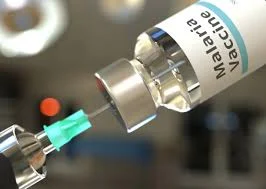 In a historic move, the World Health Organization (WHO) has approved the first-ever malaria vaccine, RTS,S/AS01, for widespread use in children in Africa. This decision follows over three decades of research and marks a major milestone in global health efforts to combat one of the world’s deadliest diseases.
In a historic move, the World Health Organization (WHO) has approved the first-ever malaria vaccine, RTS,S/AS01, for widespread use in children in Africa. This decision follows over three decades of research and marks a major milestone in global health efforts to combat one of the world’s deadliest diseases.
Malaria remains a significant public health challenge, particularly in sub-Saharan Africa, where more than 260,000 children under the age of five die from the disease each year. The newly approved vaccine, developed by British pharmaceutical company GlaxoSmithKline (GSK), targets Plasmodium falciparum, the most deadly malaria parasite.
The decision to recommend the vaccine for widespread use came after successful pilot programs in Ghana, Kenya, and Malawi, where more than 800,000 children were vaccinated. The results showed that RTS,S/AS01 could reduce malaria cases by 40%, a promising breakthrough for communities heavily affected by the disease.
The vaccine requires four doses: three doses are given a month apart, followed by a fourth dose administered 18 months later. It is designed to be used alongside existing malaria prevention measures, such as bed nets and insecticides, which have been effective but not enough to completely eliminate malaria.
Dr. Tedros Adhanom Ghebreyesus, WHO Director-General, hailed the approval as a “historic day” for the fight against malaria. He emphasized that the vaccine would save tens of thousands of lives each year and help reduce the burden on overstretched health systems in Africa.
However, experts caution that while the vaccine is a critical tool, it is not a silver bullet. Additional efforts to improve healthcare infrastructure, maintain mosquito control measures, and continue research into other malaria vaccines will still be needed.
The approval of RTS,S/AS01 represents a significant step in the global fight against malaria, offering hope to millions of families and communities affected by the disease.
WHO, along with GSK and international health organizations, plans to roll out the vaccine across the most affected regions in Africa over the coming months.



















